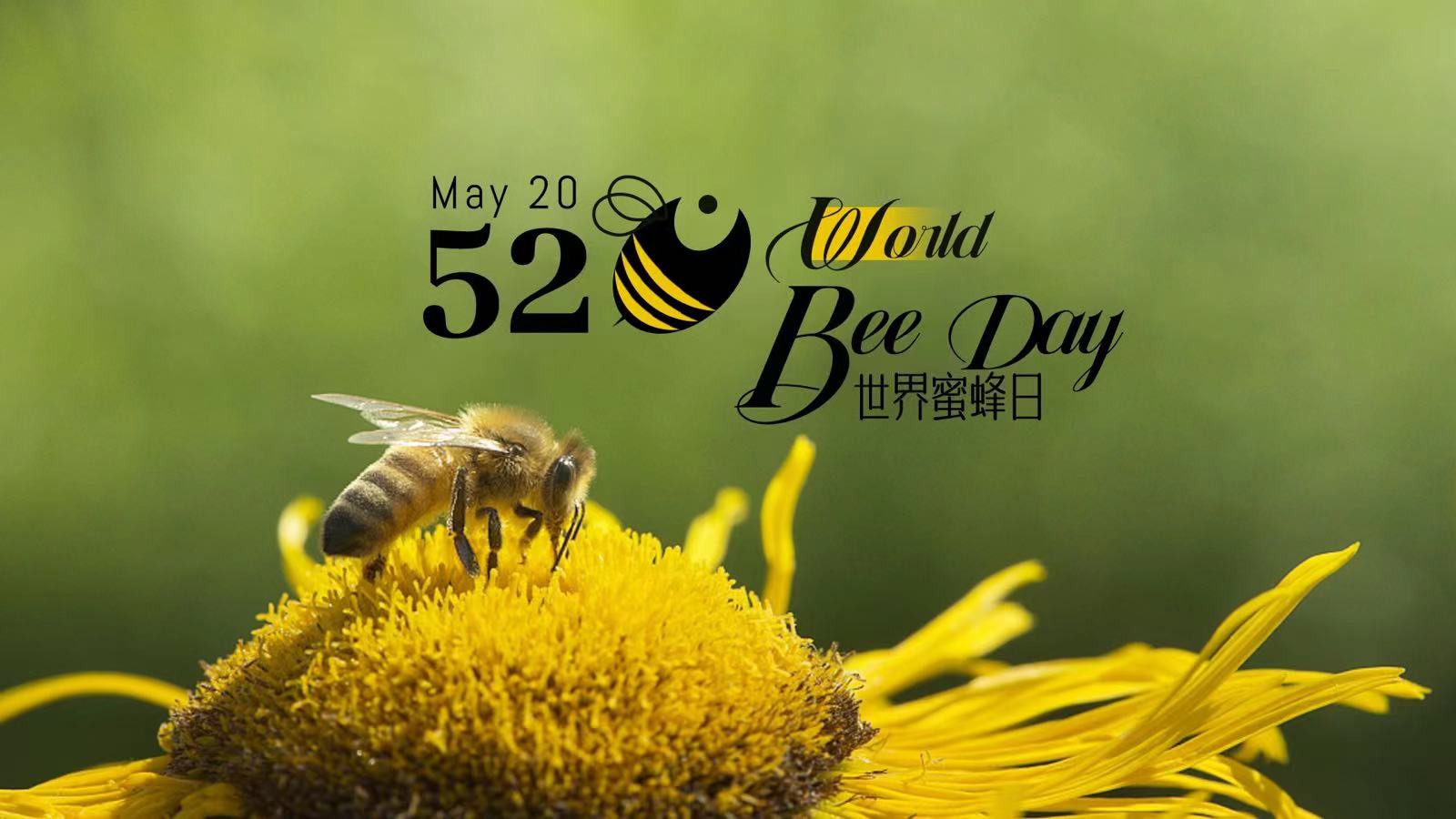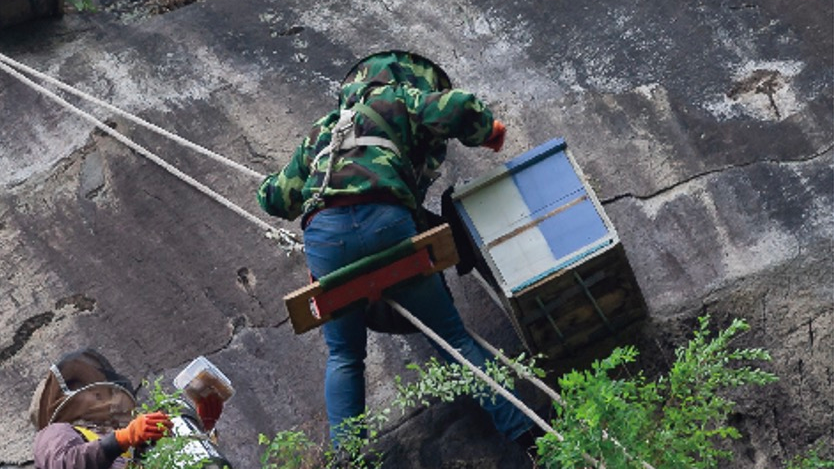
May 20 is World Bee Day, designated by the UN as such in 2017. It aims to raise awareness of the importance of pollinators and their contribution to sustainable development.
Pollination is a fundamental process in our ecosystems. Nearly 90 percent of wild flowering plant species worldwide depend on animal pollination, as do over 75 percent of the world's food crops and 35 percent of agricultural land. Pollinators not only contribute to food security but are also critical to the conservation of biodiversity.
In 2017, the town of Fengjiayu in Miyun, Beijing, was built as the core area of the Chinese Honey Bee Nature Reserve, and now the population of Chinese honey bees in the reserve has recovered to more than 10,000 colonies. There are more than 240 Chinese bee farmers in the town, with an annual honey production of 100,000 kg and an income of 10 million yuan.
The oriental honeybee (Apis cerana) is a unique species in China. It is highly adaptable to the environment and is able to make extensive use of scattered nectar plants, with long nectar harvesting periods and high utilization rates. The oriental honeybee goes out to work when the temperature is above 7 degrees, thus guaranteeing that plants in alpine and high-altitude areas will not become extinct due to the lack of insect pollination.

The staff of reserve climb the cliff to get honey.
The staff of reserve climb the cliff to get honey.
The upstream of Miyun Reservoir, 120 km from downtown Beijing, is the core area of the Oriental Honeybee Reserve. The mountains and forests near Miyun Reservoir, isolated from other bees, provide a small piece of paradise for the oriental honeybee. Miyun has adopted the method of beekeeping on the cliff wall, which prevents rats and snakes from harming the Chinese bees, and at the same time restores the wild nature of the Chinese bees. The technicians of the reserve climb the cliffs like "spiderman" to get the honey.
"Oriental honeybee are instrumental in maintaining ecological balance," Zhao Xin, a staff member of Fengjiayu town, said. "They are good at collecting nectar and are not picky, and many wild plants depend on them for pollination, but the recent decline in oriental honeybee has damaged the inherent natural ecosystem and reduced species diversity," she added.

She said that the honey produced by oriental honeybees is becoming more and more popular among consumers because of its long honey-making cycle with less water and its highly herbal value.
In order to protect oriental honeybees, China has established several breeding farms and protected areas, and has included the oriental honeybee in the national bee gene pool for protection.
(All images provided by Zhao Xin)
(If you want to contribute and have specific expertise, please contact us at nature@cgtn.com.)